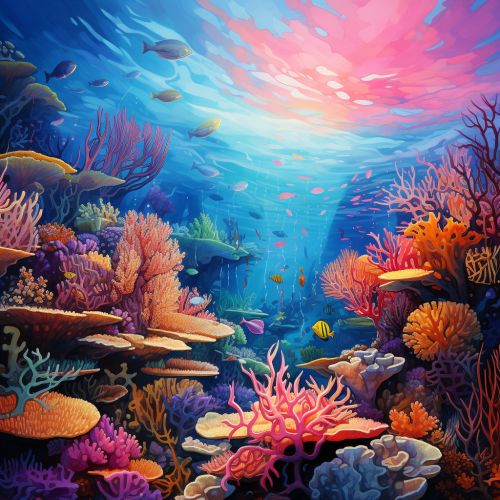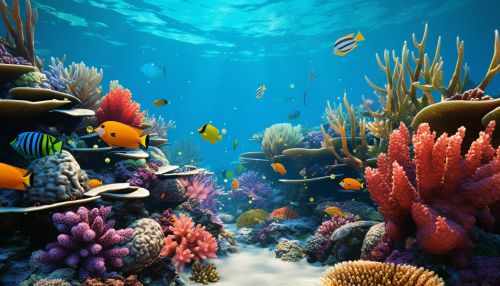The Dynamics of Coral Reef Recovery and Resilience
Introduction
Coral reefs are among the most diverse and productive ecosystems on Earth, providing a wide range of ecological services. However, they are also among the most threatened, with many reefs worldwide experiencing significant declines in health and function due to a variety of stressors. The dynamics of coral reef recovery and resilience are complex and multifaceted, involving a wide range of biological, physical, and human factors.
Coral Reef Resilience
Resilience in coral reefs refers to the ability of these ecosystems to resist damage, recover from disturbances, and adapt to changing environmental conditions. This resilience is determined by a variety of factors, including the diversity and health of the coral community, the presence of key species, and the physical structure of the reef.


Factors Influencing Coral Reef Resilience
Several factors can influence the resilience of coral reefs. These include the diversity and abundance of coral species, the health and condition of the reef, the presence of key species, and the physical structure of the reef. Other factors such as water quality, temperature, and light levels can also play a role.
Biodiversity
Biodiversity is a key factor in coral reef resilience. A diverse coral community can provide a buffer against disturbances, as different species may respond differently to stressors. This can help to maintain the overall function and structure of the reef, even if some species are negatively affected.
Physical Structure
The physical structure of the reef is another important factor in resilience. Reefs with a complex structure can provide a variety of habitats for different species, which can contribute to biodiversity and ecological function. Additionally, a complex structure can help to dissipate wave energy, reducing the impact of physical disturbances.
Water Quality
Water quality can also influence coral reef resilience. High levels of nutrients or pollutants can lead to algal blooms, which can smother corals and reduce light availability. On the other hand, clean, clear water can promote coral growth and health.
Coral Reef Recovery
Recovery in coral reefs refers to the process by which these ecosystems regain their health and function following a disturbance. This can involve the regrowth of corals, the recolonization of the reef by key species, and the restoration of ecological processes.
Coral Regrowth
Following a disturbance, corals can regrow from surviving fragments or through the settlement and growth of new coral larvae. This process can be influenced by a variety of factors, including the availability of suitable substrate, water quality, and the presence of herbivores to control algal growth.
Recolonization
Recolonization by key species is another important aspect of coral reef recovery. This can include the return of herbivorous fish to control algal growth, the recolonization of the reef by corals and other invertebrates, and the return of top predators to restore the natural balance of the ecosystem.
Human Impacts and Management
Human activities can have a significant impact on coral reef resilience and recovery. Overfishing, pollution, and climate change are among the main threats to coral reefs. However, effective management strategies can help to mitigate these impacts and promote reef resilience and recovery.
Overfishing
Overfishing can reduce the abundance of key species, such as herbivorous fish, which can lead to algal overgrowth and reduced coral health. Management strategies to address overfishing can include the establishment of marine protected areas, the implementation of sustainable fishing practices, and the enforcement of fishing regulations.
Pollution
Pollution can have a significant impact on coral reef health and resilience. Nutrient runoff from agriculture can lead to algal blooms, while other pollutants can directly harm corals and other reef organisms. Management strategies to address pollution can include the implementation of best management practices for agriculture and industry, the treatment of wastewater, and the enforcement of pollution regulations.
Climate Change
Climate change poses a significant threat to coral reefs, with rising temperatures leading to coral bleaching and ocean acidification reducing the ability of corals to build their skeletons. Management strategies to address climate change can include the reduction of greenhouse gas emissions, the protection of coral reefs from other stressors to enhance their resilience, and the implementation of strategies to help reefs adapt to changing conditions.
Conclusion
The dynamics of coral reef recovery and resilience are complex and multifaceted, involving a wide range of biological, physical, and human factors. Understanding these dynamics is critical for the effective management and conservation of these vital ecosystems.
